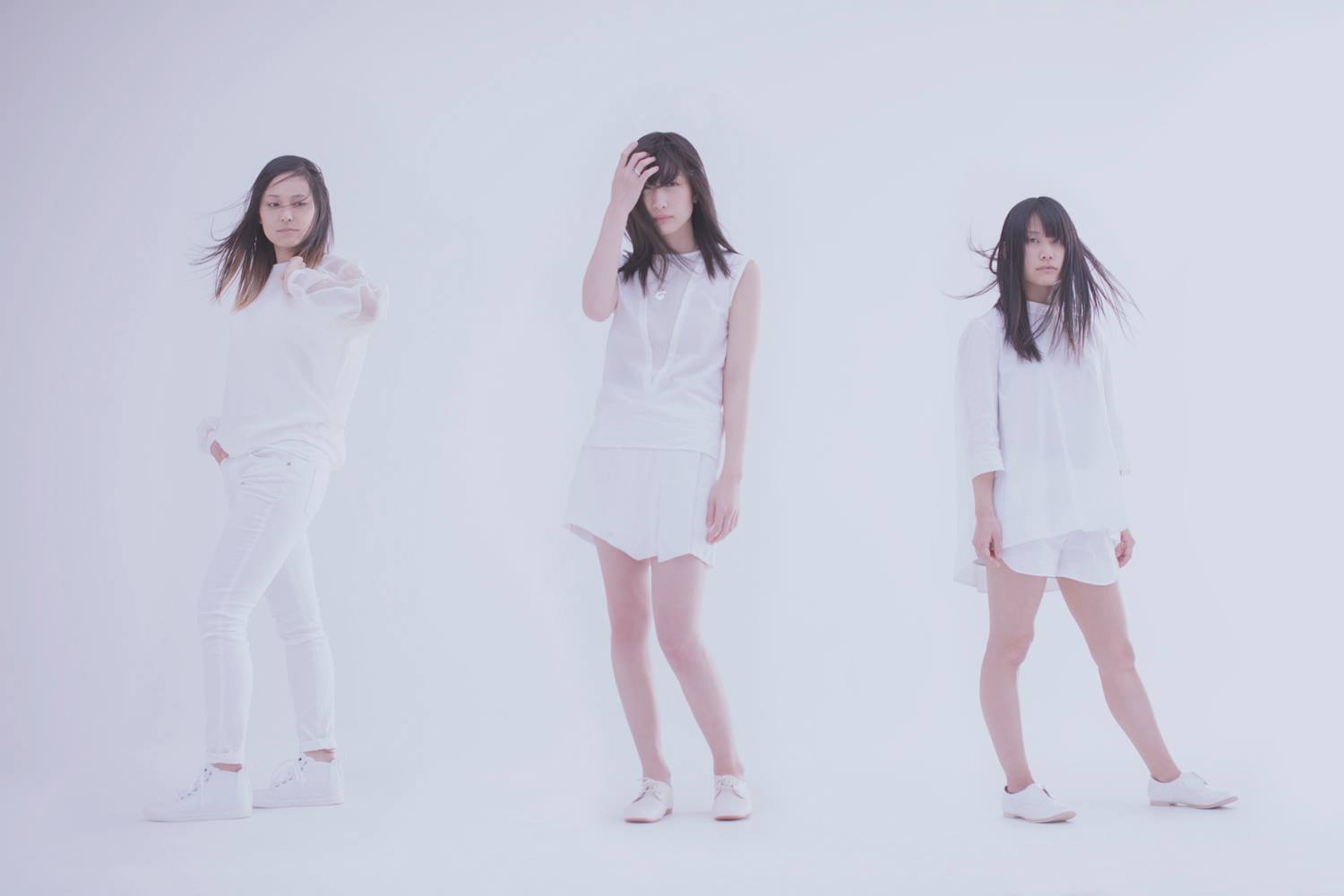Nowadays, when people talk about Japanese music, chances are they’re talking about one of two things.
One is J-pop, music that’s often sickly sweet and rather slick, the other is Hatsune Miku, who’s both J-Pop and a robotic hologram, which seems almost too on-the-nose for Japanese pop. Oh, and sometimes they’re supposedly talking about Yoko Kanno, but really just the soundtrack she did once. Which isn’t even her best soundtrack, but whatevs.
Thing is, Japan’s a country with a wealth of music that’s not sugary sweet. Three examples: Shonen Knife, a band even Kurt Cobain loved; The Plastics, who were weirder than DEVO, but every bit as good; Pizzacato Five, who did a lot more than that song you heard in Futurama.
Which brings me to Tricot, a four-piece band out of Kyoto that busts out choppy math rock like it’s nobody’s business.

 Formed in 2010, Tricot is essentially three permanent members, plus a touring drummer. Hiromi “Hirohiro” Sagame plays bass while Motoko “Motifour” Kida and Ikkyu Nakajima play guitar; all of ‘em sing. A N D is their newest album, but it’s their second LP: T H E was released in 2013. It’s also worth searching for.
Formed in 2010, Tricot is essentially three permanent members, plus a touring drummer. Hiromi “Hirohiro” Sagame plays bass while Motoko “Motifour” Kida and Ikkyu Nakajima play guitar; all of ‘em sing. A N D is their newest album, but it’s their second LP: T H E was released in 2013. It’s also worth searching for.
I probably shouldn’t have to say this, but yes: Tricot performs in a different language. No, I’m not really sure exactly what they’re saying and frankly, I don’t really care. The guitars slash and crash, the rhythm bounces between riffs and they rock as well as anyone I can think of on either side of Pacific.
A N D opens with “No Adrenaline,” which starts with angular guitar riffs, a driving bassline and some tasty lead guitar before exploding into the chorus. It sets the tone: this is a band who teeter between a loud-quiet dynamic, balancing riffs and tricky lines with driving blasts of energy.

 Take track four –“ 色の無い水槽” or “Colour Without Aquarium,” if Google Translate has it correctly – where the singing and steady drumming build up the tension, before the whole band kicks in with a fury at the chorus.
Take track four –“ 色の無い水槽” or “Colour Without Aquarium,” if Google Translate has it correctly – where the singing and steady drumming build up the tension, before the whole band kicks in with a fury at the chorus.
There are other moments of inspiration: track six (“消える,” or as Google stylizes it, “Disappearing “) goes back and forth between loud and quiet, slow and fast, choppy Television-ish riffs and a driving pop-punkish guitar blast.
Another comes on track seven (“ぱい〜ん A N D ver,” as my copy has it; I’m not even going to attempt a translation), which opens with solo piano before a crunchy guitar part and shouted vocals kick in, eventually settling into a cool groove: the pianos giving their spiky rock an interesting accent.

Honestly, the whole thing makes me think of late Sonic Youth, particularly Rather Ripped: it’s kind of poppy, kind of complex but really just rocks like it’s nobody’s business. They’re all good musicians and Tricot’s twin guitar attack especially stands out: they flip between tricky lines and driving chords like it’s nobody’s business. At the same time, their melodic side gives A N D a nice edge; it’s never abrasive or seems complicated for it’s own sake.
Or, for that matter, like anything you might expect a Japanese band to sound like: there’s certainly shades of Shonen Knife here and maybe even a dash of The Brilliant Green, but not a lot. Tricot isn’t as Ramones obsessed as Osaka’s finest and their rock never veers into anything resembling idol-obsessed, sugary-sweet J-Pop.
Is it for everyone? Maybe not, since I imagine the language barrier will scare off some people. But it’s their loss: A N D is a good record, one stuffed with good twin-guitar riffage, an interesting mix of math rock and pop-punk, and, yes, lots of Japanese vocals. Keep an open mind and Tricot’s A N D will surprise you.
Rating: 4.5/5



